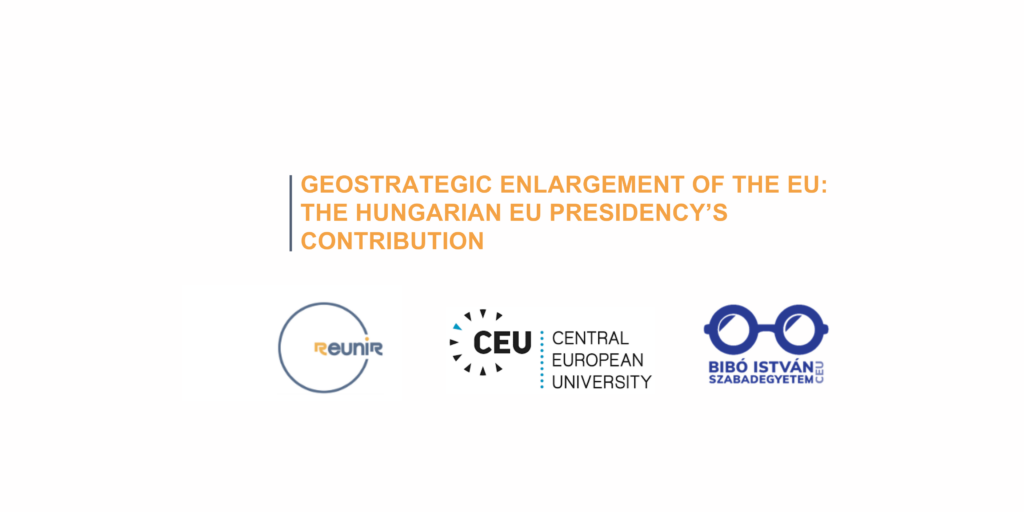In the context of REUNIR’s rotating Council presidency series, a public event was held at the Central European University in Budapest on December 16, 2024. The event was titled „Geostrategic enlargement of the EU: The Hungarian EU Presidency’s contribution” and critically assessed the recent acceleration in both formal accession processes and forms of gradual integration of candidate countries.
Speakers:
- Péter Balázs, former Foreign Minister of Hungary, former European Commissioner, and Professor emeritus of CEU
- Miklós Losoncz, Professor of Budapest Business University
- Steven Blockmans, Senior Research Fellow at CEPS (Brussels) and ICDS (Tallinn), Project Coordinator of REUNIR
- Moderator: Dorjana Bojanovska Popovska, Post-doctoral researcher of CEU Democracy Institute
Expectations about the Hungarian rotating presidency of the Council of the EU were low, given the constraints posed by increased geopolitical sabre-rattling and political resistance of a vast majority of member states that eyed this presidency with scepticism and concern in a period of institutional transition. Even so, the Hungarian government claimed success for pushing along the accession negotiations of some Western Balkan states (Montenegro, Albania and, more controversially, Serbia), while securing the start of the implementation of the ‘Growth Plan’ for the Western Balkans and a negotiating position of the Council for the Reform and Growth Facility of Moldova. Arguably, the new dynamic in the EU enlargement dossier was driven by various other and bigger forces than the rotating presidency of the Council. On the flipside, Prime Minister Orban’s uncoordinated messaging and visit to Tbilisi in the immediate wake of the heavily contested parliamentary elections in Georgia were deemed premature by other member states and a misrepresentation of the EU position because of the disregard of democratic principles and the rule of law. Denying the emergence of a common position, the Hungarian Presidency abused its position as chairholder of the Council to advance its own worldview with narratives peddled by adversaries to the idea of EU enlargement.
This REUNIR event was organised in cooperation with the CEU’s Bibó István Centre and Democracy Institute and attracted an audience of around 25 people.

